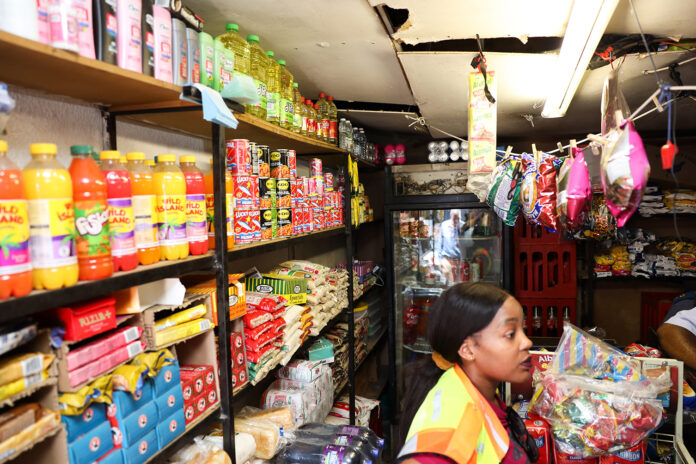Government has resolved to extend the registration deadline for all spaza shops and other food-handling outlets to February 28 2025.
This was announced by Cooperative Governance and Traditional Affairs (Cogta) Minister Velenkosini Hlabisa during a government media briefing on Wednesday.
Hlabisa said the decision was taken in consultation with President Cyril Ramaphosa.
Hlabisa hosted a media briefing on Wednesday to outline government’s action plan to manage foodborne illnesses. He hosted this along with ministers leading the multidisciplinary teams for the national response to instances of foodborne illnesses.
The media briefing took place at the GCIS Media House in Hatfield, Pretoria.
Initial 21 days deadline
Last month, Ramaphosa said all spaza shops and other food handling facilities must be registered. They were to do so within the municipalities in which they operate within 21 days from November 15. The initial deadline was December 13 2024. It was extended to December 17, which was yesterday (Tuesday). All this was in response to the foodborne illnesses scourge that claimed the lives of 20 children in the country.
Hlabisa said the government will continue to implement the action plan to address the crisis of foodborne illnesses. It will also continue to address the illicit trade of goods across the country. These will not cease as the countdown to the February deadline begins.
Trading licenses
“Those who have registered their businesses will still need to undertake a further process to obtain their trading licenses. For this process, environmental health practitioners and other regulatory authorities will still carry out inspection. They will inspect owners of registered food-related trading businesses. And this is in order to ensure that their businesses are eligible to trade,” said Hlabisa.
“It is essential to explain that the end of this period does not mean that the process is over. A lot still needs to happen for those who have registered their businesses and others who still need to do so.
“As the multidisciplinary team dealing with this outbreak, we will continue our efforts. We will ensure that all food handling facilities, including manufacturers, comply with business and health regulatory requirements,” said Hlabisa.
More than 1000 spaza shops closed
He said 1,041 spaza shops have already been closed.
“We need to explain that we are dealing with two distinct processes. The first process is business compliance, where you need to register the spaza shops or any food handling business. The second process is compliance with health regulations. This process does not depend on whether you are registered or not. If you don’t comply with the health regulations, the business is closed down immediately. Hence, 1,041 spaza shops have already been closed,” said Hlabisa.
Hlabisa said between November 15 and December 17, government received 42,915 registration applications across the country’s 392 registration centres.
He said 19,386 spaza shops and food-handling outlets have been registered across the country.
No spaza shops registered in North West
Mpumalanga recorded the highest number of spaza shops and food-handling outlets registered. It’s sitting at 7,263 businesses registered. No spaza shops and food-handling outlets were registered in North West despite the province receiving 5,005 applications.
He said inspections of imported food items have also been intensified at ports of entry of the country. These include medicines, drugs, and pesticides.
“Heightened surveillance at all 71 ports of entry. This is especially marine ports in KwaZulu-Natal including Durban, is aimed at preventing the entry of unsafe goods. Recently, 470 Litres of pesticides were seized at a bonded warehouse and denied entry into the country,” said Hlabisa.
This year, the country experienced a rise in reported cases of food-borne illnesses and deaths. Countless people became severely ill and even died after eating contaminated food.
Terbufos pesticide
It was discovered that some of the contaminated food items were purchased from spaza shops and street vendors.
Since the beginning of September this year, there have been more than 890 reported incidents linked to foodborne illnesses.
More than 20 children have died. In October, six children died in Naledi, Soweto, from allegedly eating snacks bought from a spaza shop.
The children were killed by a highly hazardous chemical used as a pesticide known as Terbufos. Terbufos is an organophosphate chemical that is registered in South Africa for agricultural use. It is not allowed to be sold for general household use.



